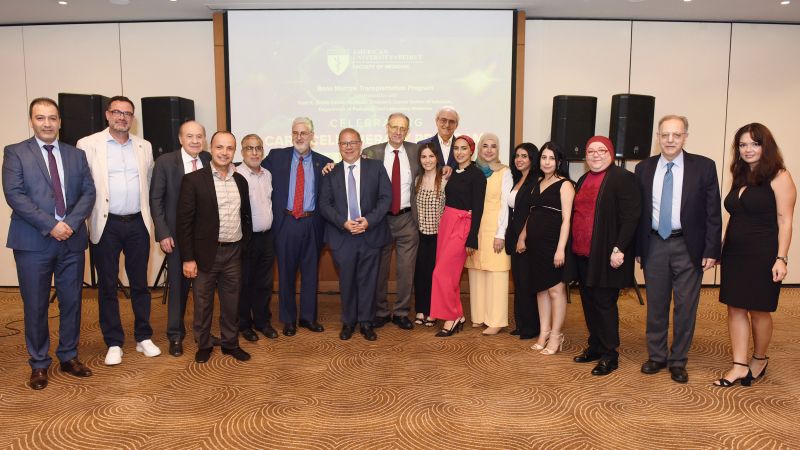The American University of Beirut Medical Center (AUBMC) has announced the launch of its chimeric antigen receptor (CAR)-T Cell Therapy Program, marking a breakthrough in cancer care in Lebanon and the wider region.
The program’s first major milestone came with the successful treatment of a patient suffering from chemotherapy-resistant lymphoma. The process involved producing CAR-T cells locally, performing quality checks, infusing them into the patient, and confirming tumour response.
A milestone in cancer treatment
AUB President Fadlo R. Khuri hailed the achievement as a defining moment for the institution.
“This is the transformation of a university that believes in excellence, in specialization, and in creating impact that goes far beyond our campus,” he said.
CAR-T cell therapy is considered one of the most advanced forms of cancer treatment, where a patient’s immune cells are reprogrammed to detect and attack malignant cells. For patients with relapsed or treatment-resistant blood cancers, it offers renewed hope when conventional options have failed.
Years of preparation
The program is the result of extensive research and multidisciplinary collaboration at AUBMC. As director of the Bone Marrow Transplantation Program, Dr Ali Bazarbachi expressed pride in the achievement.
“Our aim is curing patients with blood cancers. This can only be achieved by continuing to bring innovative therapies that are provided through fantastic teamwork, like an orchestra performing a piece of music,” he said.
Regional impact
By successfully administering this cutting-edge therapy, AUBMC has positioned itself at the forefront of cancer treatment in the Middle East. The ability to produce CAR-T cells locally also represents a significant step in reducing reliance on external facilities and expanding access to patients in the region.
The launch is not only a scientific milestone but also a symbolic one for healthcare in Lebanon, where patients have often had to travel abroad to receive such advanced therapies. AUBMC says its initiative will allow more families to seek treatment closer to home.
Hope for the future
AUBMC described the development as both “potentially curative and life-saving,” underscoring its broader mission to contribute to global progress in blood cancer treatment.
Officials emphasised that the program represents more than a medical advancement—it is a message of hope. By bringing world-class therapies to Lebanon, AUBMC aims to redefine the country’s approach to cancer care and inspire new possibilities for patients facing life-threatening diseases.

